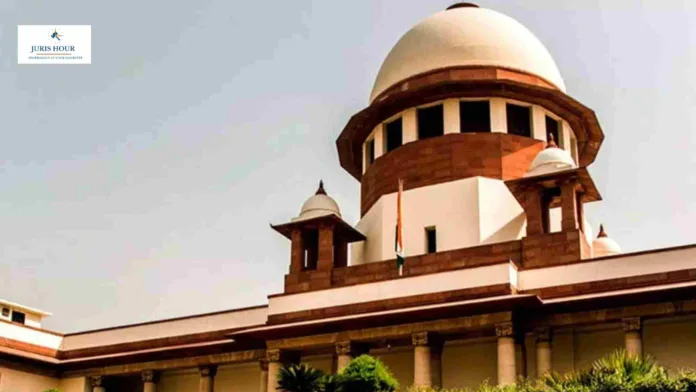The Supreme Court has held that a sale deed cannot be executed by power of attorney after the owner’s death.
The bench of Justice J. B. Pardiwala and Justice R. Mahadevan has observed that by executing the POA along with agreement to sell, the holder had an interest in the immovable property. If interest had been transferred by way of a written document, it had to be compulsorily registered as per Section 17(1)(b) of the Registration Act. The law recognizes two modes of transfer by sale, first, through a registered instrument, and second, by delivery of property if its value is less than Rs. 100.
The dispute arises from a common claim put forward by the appellants and the respondent on property. The Suit Property originally formed part of 1 acre 8 guntas of land situated in Chunchaghatta Village, Uttarahalli Hobli, Bangalore South Taluka within the revenue limits of Konanakunte Gram Panchayat owned by late Muniyappa @ Ruttappa (original owner). The original owner developed the land in the form of individual plots and sold those plots for consideration to various persons. The Suit Property is one of those plots.
It is the case of the appellants that on 04.04.1986, the Suit Property was sold by the original owner one A. Saraswathi (holder) for total sale consideration of Rs.10, 250/- by executing an irrevocable power of attorney (POA) and an unregistered agreement to sell.
On the same day, the said POA was duly notarized. On 30.01.1997, the original owner, executant of the POA died. On 01.04.1998, the holder of POA executed a registered sale deed with respect to the Suit Property in favour of her son, i.e., the appellant, in exchange of sale consideration of Rs. 84,000.
On the other hand, several years after the death of the original owner, his legal heirs through a registered sale deed dated 21.03.2003 sold the same Suit Property to the respondent for total sale consideration of Rs. 76,000/-. Subsequently, respondent sold the Suit Property to the respondent vide another registered sale deed dated 29.09.2003 for total sale consideration of Rs. 90,000/-. Then, on 06.12.2004, the respondent executed a registered gift deed in favour of her daughter.
The issue raised was whether the registered Sale Deed dated 01-04-1998 in favour of the plaintiff in O.S.No.4045/2008 executed by Smt. A. Saraswathi as a General Power of Attorney holder would convey a valid title in favour of the plaintiff?
Whether the registered Sale Deed dated 01-04-1998 in favour of the plaintiff in O.S.No.4045/2008 executed by Smt. A. Saraswathi as a General Power of Attorney holder would convey a valid title in favour of the plaintiff?
The Respondents contended that sale deed was executed after death of original owner (principal) and was, therefore, invalid.
The Appellant argued that original owner (principal) had executed a General Power of Attorney (POA) and an Agreement to Sell in favour of agent, who subsequently, in her capacity as agent, executed a registered sale deed in favour of appellant. POA was general in nature and did not secure agent’s right in subject matter of agency, an agreement to sell simpliciter did not confer ownership in immovable property so as to transfer a better title to anyone else. Transfer of immovable property by way of sale could only be by a deed of conveyance, an agreement to sell is not a conveyance and it is not a document of title or a deed of transfer of deed of property and does not confer ownership right or title.
The court held that even though POA and agreement to sell were contemporaneous documents executed by original owner in favour of the same beneficiary, this could not be the sole factor to conclude that she had an interest in subject-matter. In absence of registration of POA and agreement to sell under section 17(1)(b) of Registration Act, it would not be open for holder of POA to contend that she had a valid right, title and interest in immovable property to execute registered sale deed in favour of appellant.
Case Details
Case Title: M. S. Ananthamurthy Versus J. Manjula Etc
Case No.: Civil Appeal Nos. 3266-3267 Of 2025
Date: 27th February, 2025
Read More: Essential Courtroom Etiquette Every Tax Lawyer Must Master


